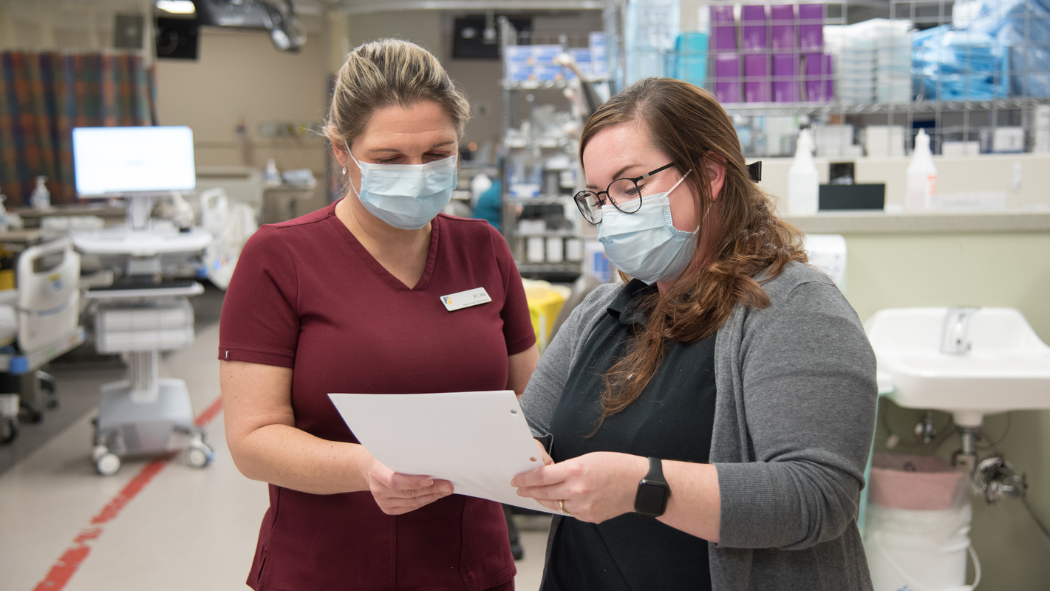
February 17, 2023
The transplant process is complex. It starts with discussions with the patient’s health-care team and a suite of tests, such as blood work and medical imaging, before the patient is finally placed on the transplant list. Until a year ago, the details of the journey were a bit unknown to patients.
Staff in the Renal Program at London Health Sciences Centre (LHSC), worked with the Patient and Family Advisory Council (PFAC) and key internal stakeholders to assess and improve communication with their patients to more accurately capture the transplant process.
Ashley Papathanassiou, a registered practical nurse with the Renal program at LHSC, was one of the key stakeholders in this review. She noted there was no formal, organized system in place for communicating with patients, and had heard from some of those patients that the information they received lacked clarity and consistency.
“We came up with the idea to communicate with patients more frequently to help them better understand where they’re at in the transplant process and what is needed to make it to the next step,” explains Papathanassiou.
She reached out to staff from Nursing Professional Practice, Privacy and Risk, and Communications and Public Engagement, and PFAC to ensure the new communications would be suitable. Once drafted, PFAC reviewed the new materials and provided input from a patient's perspective.
This collaboration led to the creation of a standardized welcome package with visual aides for patients who join the Renal Transplant program, as well as an ad hoc form in PowerChart that allows clinical staff to see where the patient is in the process.
“This has been a great move for the program; for both patients and clinical staff who didn’t always have the whole picture,” says Papathanassiou. “Patients now have a sense of where they’re at and what is expected, which is leading to more informed conversations among them and their families.”
Deb Beaupre, co-chair of the Renal PFAC, agrees.
“As patients, we all have very different journeys, and thorough out the journey there are certain aspects we need to understand,” she says. “Communication is critical, and it’s important we’re heard because as good as the health-care team is, they aren’t the ones living this journey.”
“Having this partnership with the physicians and broader health-care team empowers patients and increases overall participation,” Beaupre adds.
Papathanassiou is proud of the impact this change is already having on the patient experience.
“Together with our Patient and Family Advisors, we successfully identified the gaps and created an improvement plan that engaged other stakeholders across the organization for the benefit of our patients and staff,” she says.